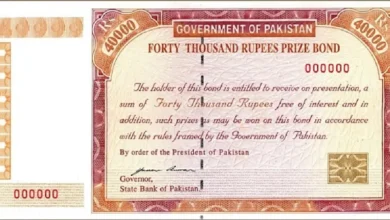
The Pakistan government has recently approved a 31% increase in the federal development budget, raising it to PKR 950 billion for the fiscal year 2023-24. This comes as the country faces significant economic challenges, including stagflation, uncertainties surrounding upcoming general elections, and a struggling economy. In this article, we will provide an overview of the Pakistan Budget for FY 2023-24, highlighting its key components, targets, and the government’s efforts to address the major issues facing the nation.
Economic Ranking and GDP Growth
Pakistan is ranked 136th in the Legatum Prosperity Index 2023. According to the Asian Development Outlook (ADO) April 2023, the country’s GDP growth is projected to slow down to 0.6% in FY2023 from 6% in the previous fiscal year. This slowdown is attributed to the economy’s struggle to recover amidst various challenges.
Budget Components and Targets
The Federal Budget in Pakistan comprises of Revenue Budget and Capital Budget. The Revenue Budget consists of both Revenue Receipts and Current/Non-development Expenditures, while the Capital Budget includes Capital Receipts and Developmental Expenditures.
For FY 2023-24, the total outlay of the budget, or total spending, is expected to be 14.5 trillion Pakistani rupees ($50.70 billion). The proposals also include a fiscal deficit target of 7.7% of GDP and a revenue collection target of 9.2 trillion Pakistani rupees ($32.17 billion).
Salary and Pension Increases
In an effort to support government employees, the Budget 2023-24 includes a 17.5% increase in pension. Additionally, the salary of Government Employees of Grades 1 to 16 will receive an increase of 35%, while the salary of Government Employees of Grades 17 to 22 will receive an increase of 30%.
Economic Review and Challenges
Pakistan is likely to post a GDP growth of 0.29% in the fiscal year ending June 2023, as per the country’s economic survey released on June 8th. This is well below the target of 5% set last year. The Pakistani economy is currently trapped in low growth, high inflation, unemployment, falling investment, excessive fiscal deficits, and a deteriorating external balance position.
The main causes of the budget deficit in Pakistan include international trade, economic growth, total debt servicing, and broad money supply. These factors have been considered as the foremost elements affecting the fiscal deficit in the country.
Government’s Efforts to Overcome Economic Challenges
Finance Minister Ishaq Dar has reiterated that the Budget 2023-24 will be “business-friendly” and that the government is taking concrete steps to overcome economic challenges. The focus will be on navigating the challenges posed by stagflation and uncertainties surrounding the upcoming general elections.
Conclusion
The Pakistan Budget for FY 2023-24 aims to address the significant economic challenges faced by the country. With increased spending, salary and pension hikes for government employees, and a focus on business-friendly policies, the government hopes to steer the nation toward economic stability. However, achieving these goals will require consistent efforts and robust reforms to overcome the existing hurdles and ensure sustainable growth in the long run.
















